News in Brief
-
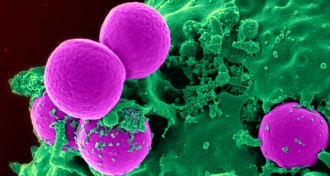 Health & Medicine
Health & MedicineDrug resistance has gone global, WHO says
World Health Organization reports that antibiotics are failing worldwide against infections.
By Nathan Seppa -
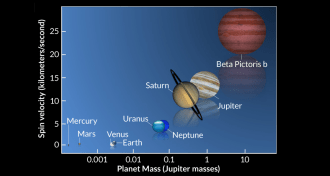 Astronomy
AstronomyExoplanet spin measured for first time
Astronomers measure the spin of a planet outside our solar system, and its days are short: just over eight hours.
-
 Science & Society
Science & SocietyStudents retain information better with pens than laptops
Compared with typing on a laptop, writing notes by hand may lead to deeper understanding of lecture material.
-
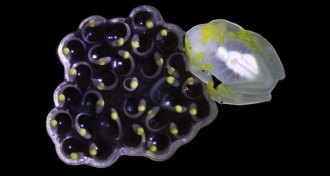 Animals
AnimalsAbandoned frog eggs can hatch early
If their father doesn’t keep them hydrated, frog embryos react by hatching early.
By Susan Milius -
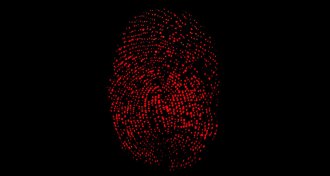 Chemistry
ChemistryColor-changing polymer maps fingerprints
Tiny beads of sweat may offer new way to identify people’s fingerprints.
By Meghan Rosen -
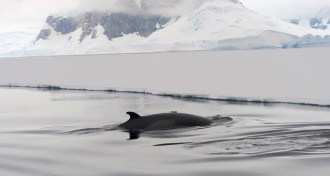 Animals
AnimalsSubmariners’ ‘bio-duck’ is probably a whale
First acoustic tags on Antarctic minke whales suggest the marine mammals are the long-sought source of the mysterious bio-duck sound.
By Susan Milius -
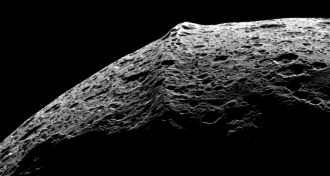 Planetary Science
Planetary ScienceMountains on Saturn moon may have come from space
A mountainous ridge around the equator of Iapetus, one of Saturn’s moons, may have formed from cosmic debris.
By Meghan Rosen -
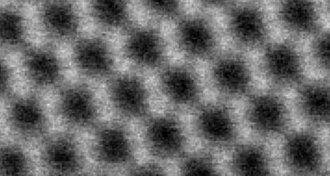 Materials Science
Materials ScienceBlender whips up graphene
Easy recipe makes large quantities of graphene using kitchen blender.
By Beth Mole -
 Genetics
GeneticsCloning produces stem cells from adult skin
Human embryonic stem cells made using adult cells could enable medical advances such as replacement organs.
-
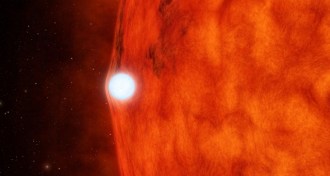 Astronomy
AstronomyWhite dwarf boosts light of stellar companion
A gravitational lens in a binary star lets astronomers weigh the core of a dead star.
-
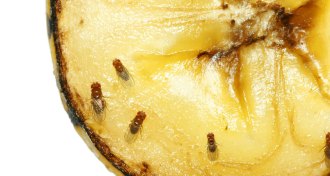 Animals
AnimalsScent of a fruit fly larva comes from its gut microbes
Microbes in the guts of fly larvae produce smells that attract fruit flies.
By Susan Milius -
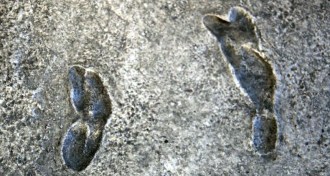 Anthropology
AnthropologyLaetoli footprints show signs of unusual gait
Contrary to prior study, 3.6-million-year-old hominids in Tanzania did not walk like humans.
By Bruce Bower